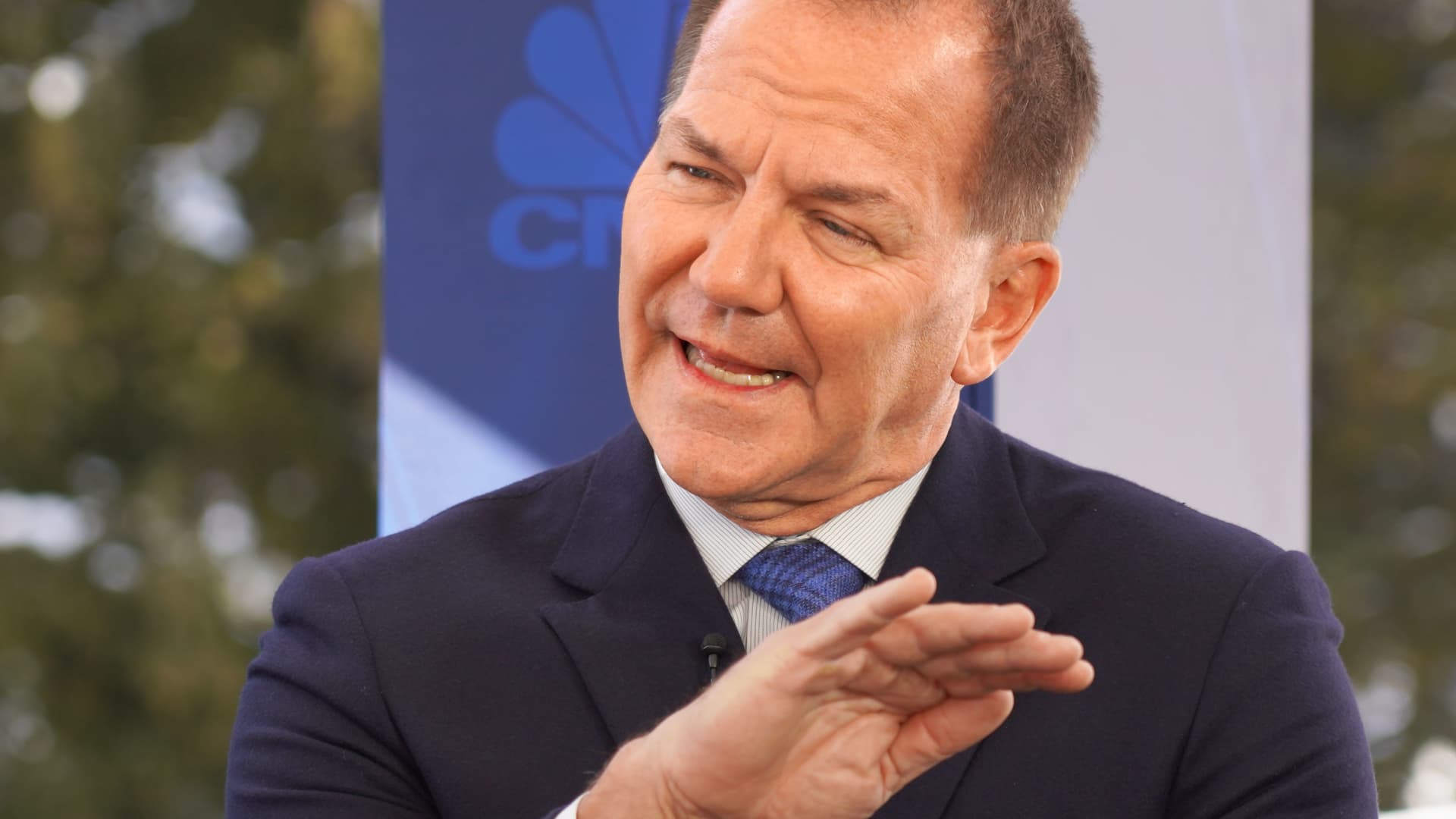Billionaire hedge fund manager Paul Tudor Jones believes the U.S. economy could run into major problems down the road due to its burgeoning fiscal deficits, which could eventually hurt the markets. “We’ve got a 6%, 7% budget deficit. We’re fast-forwarding consumption like crazy,” Jones told CNBC’s ” Squawk Box ” Monday. “It should be going gangbusters because we got an economy on steroids. It’s unsustainable.” The U.S. government ran up another half a trillion dollars in red ink in the first quarter of its fiscal year. The jump in the deficit pushed total government debt past $34 trillion for the first time. Jones echoed the sentiment from Federal Reserve Chair Jerome Powell , who in a wide-ranging interview with “60 Minutes” on Sunday said the U.S. federal government is on an unsustainable fiscal path, causing the national debt to grow at a faster pace than the economy. The founder and chief investment officer of Tudor Investment said the danger of this reckless fiscal spending could be veiled by the boom of artificial intelligence, which is improving productivity significantly. “The only question is does that manifest itself in the markets, or when does that manifest itself in the markets,” he said. “It could be this year; it could be next year. Productivity may mask and it might be three or four years from now but clearly, clearly, we’re on a unsustainable path.” Jones, who shot to fame after he predicted and profited from the 1987 stock market crash, said the two big macro themes — “the debt bomb” in the U.S. and the rise of AI — are clashing with each other. “There are larger issues that we’re going to be focusing on somewhere down the road. It’s going to be around, how do we stop and close the fiscal deficits that we have, as well as how do we use AI to benefit all Americans, not just the 5,000 or 10,000 extraordinarily brilliant people who are going to change our lives with it,” he said. Jones is also the chairman of nonprofit Just Capital, which ranks public U.S. companies based on social and environmental metrics.
This story originally appeared on CNBC

